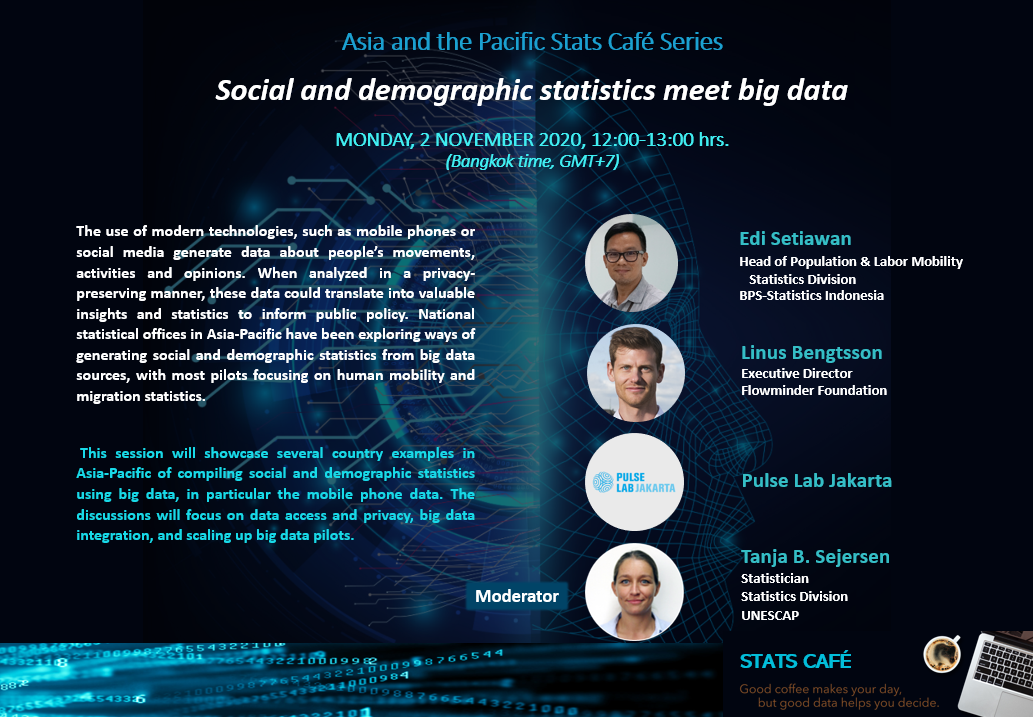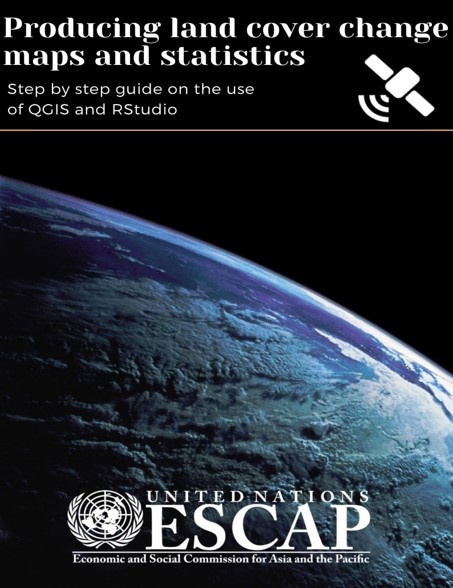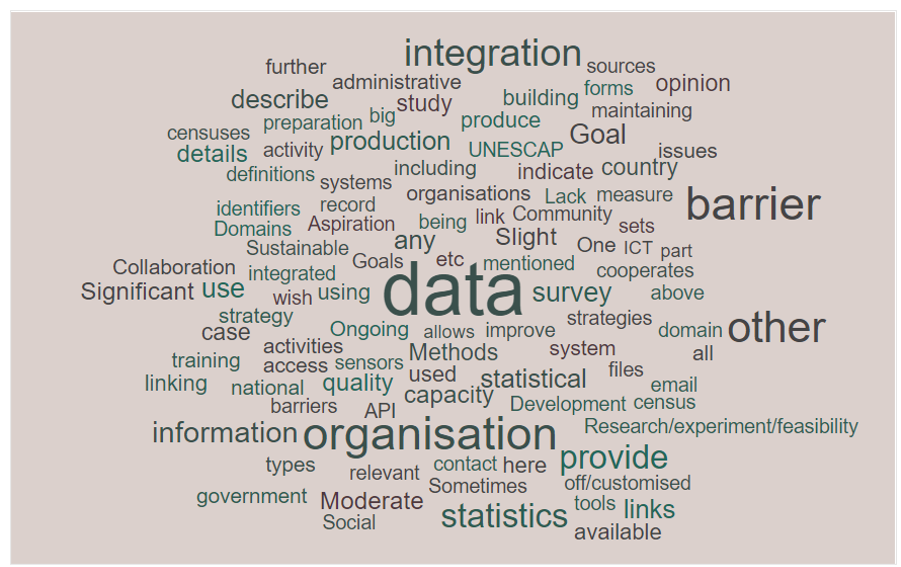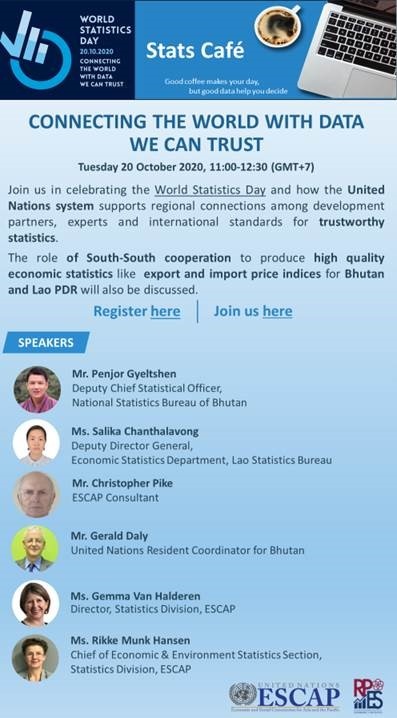Monday, 2 November 2020 from 12:00-13:00 (Bangkok time, GMT+7)
Please register here and join the meeting via Microsoft Teams Meeting.
>>> See other Asia-Pacific Stats Café series

Tuesday, 27 October 2020 from 13:00-14:00 (GMT+7)
Please register here and join the meeting via Microsoft Teams Meeting.
>>> See other Asia-Pacific Stats Café series
ESCAP-Statistics recently launched a guide entitled “Producing land cover change maps and statistics: Step by step guide on the use of QGIS and RStudio.” The guide explains the use of open-source software, namely Quantum Geographic Information System (QGIS) to construct a map displaying land cover change over time, and RStudio to generate land cover change statistical tables. Maps and tables are generated in accordance with the land cover categories of the System of Environmental-Economic Accounting (SEEA). Additional guides on similar methodology will be available shortly.
Please click this link to access the guide.


Thank you to everyone for responding to the Data Integration Capacity Assessment Survey!
In June 2020, the Data Integration Community of Practice agreed to design and conduct the survey, based on a UNECE survey, to gather information on data integration strategies, challenges, and projects in National Statistics Offices and related organisations in the Asia and the Pacific region. The survey was designed in July and Aug. and released on 09 Sep.
The results will be used to inform where we should concentrate capacity building activities. The results show that there is:
- a lot of expertise in the region
- a lot of interest in developing more expertise
- an opportunity to share approaches and strategies
- there are interesting areas for collaboration – including cooperation agreements, record linkage techniques, statistical matching methods and addressing common barriers
- a lot of aspiration for using more Data Integration in our statistical production
- a strong role for using data integration to improve or develop SDG indicators
- many different tools are being used
- strong expertise in managing quality issues.
You can see more information about the results here.
If you haven’t yet completed the survey or you wish to submit a case study for the community, you can submit a form here. (All questions are optional!)

Tag Cloud based on questions in the Survey
UNESCAP published a blog on 15 October 2020 describing our community's experience and discussing whether we are now convinced of the value of communities of practice (spoiler alert: we are – with the right conditions).
The blog tells the story of our journey, how after the UNESCAP Committee on Statistics decided in 2018 to establish communities of practice, we started with researching existing communities and developed our approach. It shows the steps we took and talks about the evaluation of the pilot.
The blog concludes that communities of practice are a cost-effective way to share knowledge and experience. They complement conventional ways of communication and collaboration, such as emails and physical meetings. The communities have also engaged more technical staff, in addition to higher-level management, by focusing on a specific area of expertise. They attract the right staff for the right purpose. They allow involvement of a broader range of minds than would be possible with more costly physical meetings and thus to progress faster.
In our minds, online communities of practice are the future – albeit requiring work and resources to be successful. Online collaboration is most certainly here to stay.
Thank you to all our community members for helping to make this happen!
Please read and share the blog with your networks.

We are pleased to invite you to the Asia-Pacific Stats Café series session on 20 October 2020 from 11.00 - 12.30h (Bangkok time, GMT+7) to celebrate the World Statistics Day with a theme Connecting the world with data we can trust.
More information about the event can be found at: HERE.
Please register here and join the meeting via Microsoft Teams Meeting.

Those who are interested to attend are requested to register through this link: https://adb-org.zoom.us/webinar/register/WN_Qc7-ssYmQTqb_JQvqPBwDQ

Powered by a free Atlassian Confluence Community License granted to https://www.atlassian.com/software/views/community-license-request. Evaluate Confluence today.
- Kolekti ThemeBuilder Powered by Atlassian Confluence 8.5.9
- Kolekti ThemeBuilder printed.by.atlassian.confluence
- Report a bug
- Atlassian News